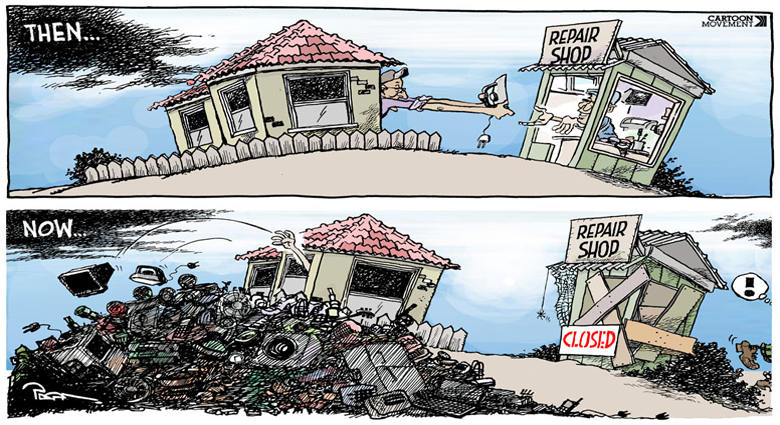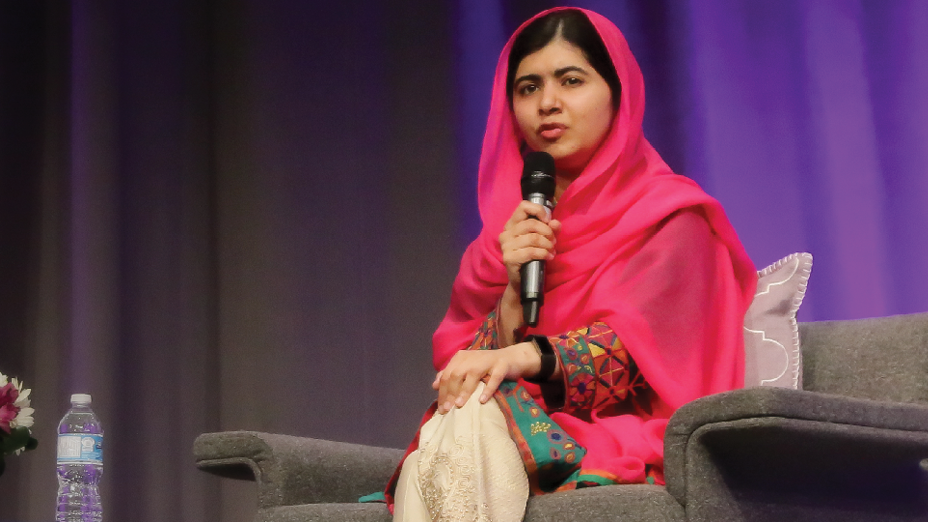This observation came from John W. Gardner - former Secretary of Health, Education and Welfare under President Lyndon Johnson - in his book, On Leadership, published in 1990.
Caught in the throes of the Cold War, Gardner understood that society would never truly evolve without strong leaders. The same holds true today despite the fact that the world is now much different than it was 30 years ago.
Whether it’s a seismic change driven by digital disruption, fundamental shifts in how or where we work, the threat posed by climate change, or the increasing globalization of our economy, leaders must be able to navigate a broader, more complex array of challenges than ever before.
And leadership has definitely evolved to keep up. Today, it is more distributed throughout an organization, from the C-suite all the way down to the frontlines. All roles matter, not just a few at the top. Leaders need to be more collaborative and build networks of peers inside and outside their organization. They also need to nurture and cultivate leadership potential in the people they lead.
In an environment like this, we need leadership to be at its strongest, maybe stronger than it’s ever been. The horrible truth is that leaders have fallen well short of where they need to be.
It is estimated that companies worldwide spend $65 billion annually on leadership development, yet many are questioning the impact of this investment. The leadership development industry hasn’t created stronger leaders. The signs are all around us. Whether it’s the chronic challenge of low employee engagement, the erosion of trust and confidence in senior leaders, or the inability of companies to drive sustainable business results – all these indicators point to weak, even disappointing leadership.
My team and I at Lee Hecht Harrison have surveyed more than 2000 global senior business executives and human resource leaders to get at the root of the problem. At the heart of the problem is a fundamental leadership accountability gap. Major findings in our study included:
-
72 percent believe leadership accountability is a critical business issue facing their organization
-
Only 31 percent of organizations are satisfied with the degree of accountability demonstrated by leaders
-
Only 45 percent of leaders are seen as being truly committed to their roles
-
Only 27 percent of organizations believe they have a strong leadership culture
Gardner would no doubt find these results alarming. If he were alive today, it seems likely he would call for a profound rethink about what it means to be a leader and how we must develop leaders for the future. Clearly, our current way of thinking isn’t working or keeping pace with the change all around us.
So where should we start to rethink leadership? In my work with leaders globally, I have identified six key drivers and trends that leaders must prepare to tackle. I describe them below with the intent of fostering reflection, discussion, and even debate. They are not intended to be all encompassing, but rather trigger points to stimulate a leadership rethink.
VUCA WORLD
The Volatile, Uncertain, Complex, and Ambiguous (VUCA) world leaders face today will continue to intensify— and challenge them like never before. This is a consistent theme we hear from our clients around the world. Leadership development in the future must ensure that leaders are equipped with the mindset and capabilities needed to manage this complexity and inspire others at a personal, team, and organizational level. In times of great change, leaders must be inspirational, excited about their companies, and passionate in driving strategy execution.
DIGITAL DISRUPTION
Digital technology will continue to transform everything we do. This includes the ways we work and learn, and how we identify and develop leaders. Big data will drive leadership analytics to help organizations better predict those individuals who are truly cut out for leadership and those who will succeed vs fail. We will need measures to gauge which leaders are truly able to be agile, and able to anticipate and make sense of their world and respond accordingly. Then as the world changes, they need to be able to do it all over again.
WORK REINVENTED
The evolution of the gig economy will generate new challenges for those in leadership roles charged with recruiting and developing talent. Many studies suggest up to 50 percent of all jobs will disappear over the next twenty-five years. Robots or other forms of technology will replace many of these jobs. Some will simply never be replaced. In a scenario like this, who will be left to lead? In a world where the very nature of work is being redefined, there will be a heavy burden on leaders to create meaningful work experiences for the people they lead. The risks of gig work are that it becomes piecework—devoid of meaning. Creating an inspiring environment in which to work will be even more critical in the future. Culture will continue to matter and we'll need leaders who get that.
ROBOTICS AND ARTIFICIAL INTELLIGENCE
Decision-making tools can complement and support the work of leaders. Or, if some innovators have their way, these tools could actually replace leaders altogether. Some suggest even CEO roles may be replaced by AI applications that use algorithms to prescribe options for a wide range of business scenarios. Whatever the future holds, a strong leader will need to have a firm grasp of these technologies, know how to exploit the benefits, all while minimizing the threats.
NEUROSCIENCE
Brain research is accelerating and providing new data on how a leader thinks and responds to crisis. While it’s important to be careful on the conclusions drawn from some of this research, it will be important to pay attention to it. Much of this research will keep showing us how our brains affect our work, our relationships at work, and how we can lead better. A growing body of scientific research about brain function and leadership culture will help leaders become more resilient, more adaptable, and more decisive.
ACCOUNTABILITY
With a world that is more transparent than ever before, there will be cries for real accountability among leaders across all parts of our society. Leaders must be seen, they must be heard, and they must help lead in the broader community outside their organizations. Expectations have never been greater. In reflecting on this theme, Gardner also believed that accountability is as important as the concept of leadership, and that those who are granted power must be held accountable.
As we head off into a brave new age defined by these trends, we are reminded of Gardner’s original observation—that the world needs a continuous flow of new leaders to move us forward. Although the conditions are different, the challenge remains the same.
We either find a way of building leaders that are better prepared for the world in which we lead, or we fail and remain stuck.


.png)

.png)




What Did You Think?